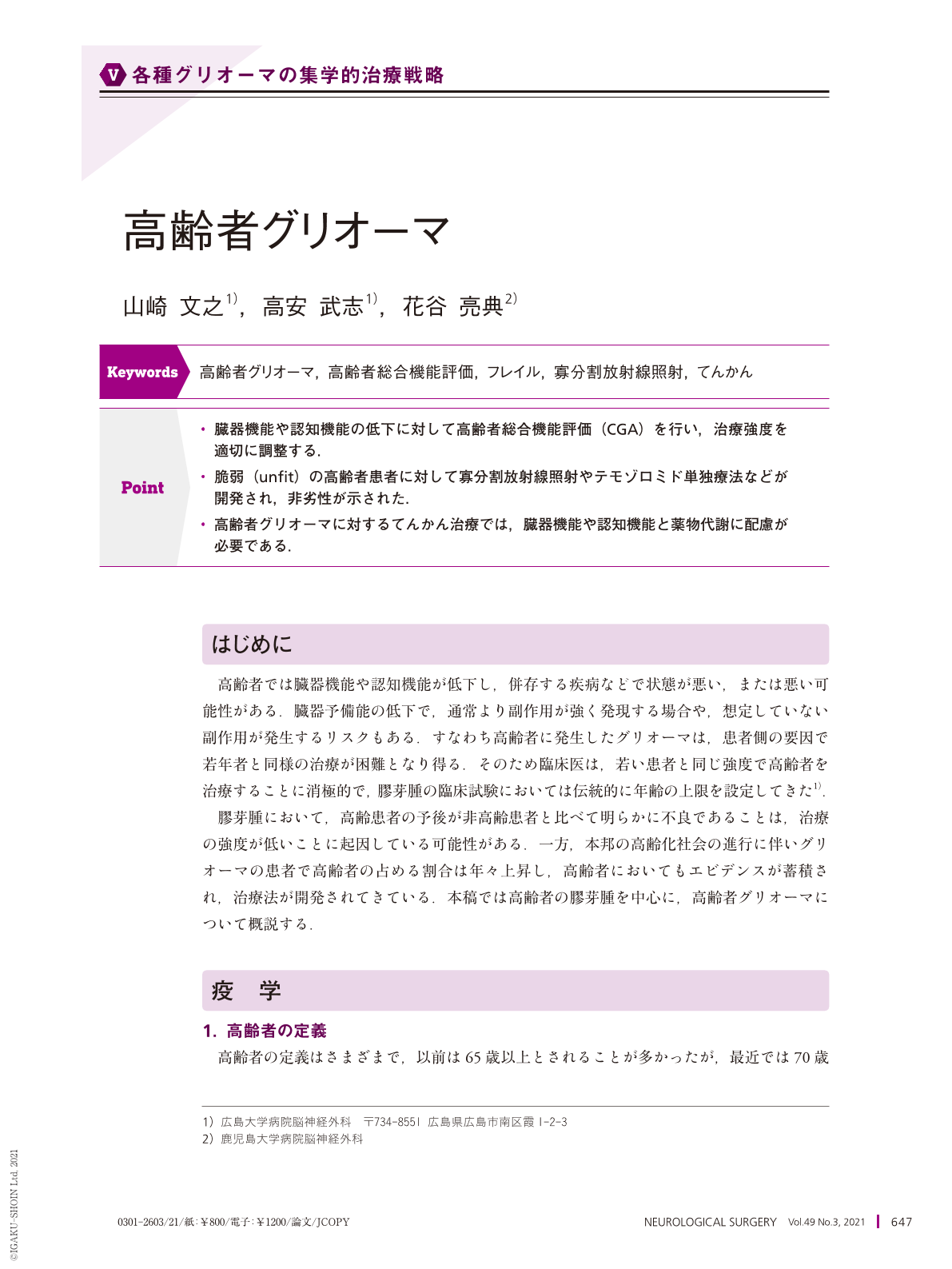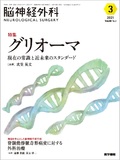Japanese
English
- 有料閲覧
- Abstract 文献概要
- 1ページ目 Look Inside
- 参考文献 Reference
Point
・臓器機能や認知機能の低下に対して高齢者総合機能評価(CGA)を行い,治療強度を適切に調整する.
・脆弱(unfit)の高齢者患者に対して寡分割放射線照射やテモゾロミド単独療法などが開発され,非劣性が示された.
・高齢者グリオーマに対するてんかん治療では,臓器機能や認知機能と薬物代謝に配慮が必要である.
Treatment of elderly glioma patients is a challenge in neurosurgery/neuro-oncology. The International Society of Geriatric Oncology(SIOG)recommends that elderly cancer patients undergo comprehensive geriatric assessment(CGA). The CGA score proved to be a significant predictor of mortality in this cohort, and it could be a useful treatment decision tool. Because of the rapid aging of Japan's population, clinical research focusing on elderly patients with cancer is urgently needed. The Japan Clinical Oncology Group(JCOG)has established a formal policy for research in geriatric cancers. Currently, the JCOG recommends that researchers perform CGA, including G8, to assess the tolerability of treatment for clinical trials in elderly cancer patients, including glioma. Under this policy, elderly cancer patients are categorized into three groups: fit, vulnerable, and frail. For “unfit” glioma/glioblastoma patients, physicians will need to conduct appropriately reduced treatment. Hypofractionated radiotherapy(40.05 Gy/15 fractions)has been an established treatment for elderly patients with glioblastoma. The concurrent and adjuvant temozolomide have reported to have a survival benefit for “fit” elderly patients. Subsequently, alternative hypofractionated radiotherapy, including 34 Gy/10 fractions and monotherapy with temozolomide against MGMT methylated glioblastomas, have been reported as non-inferior alternative treatments. Physicians also need to consider the adverse events associated with anticonvulsants.

Copyright © 2021, Igaku-Shoin Ltd. All rights reserved.


